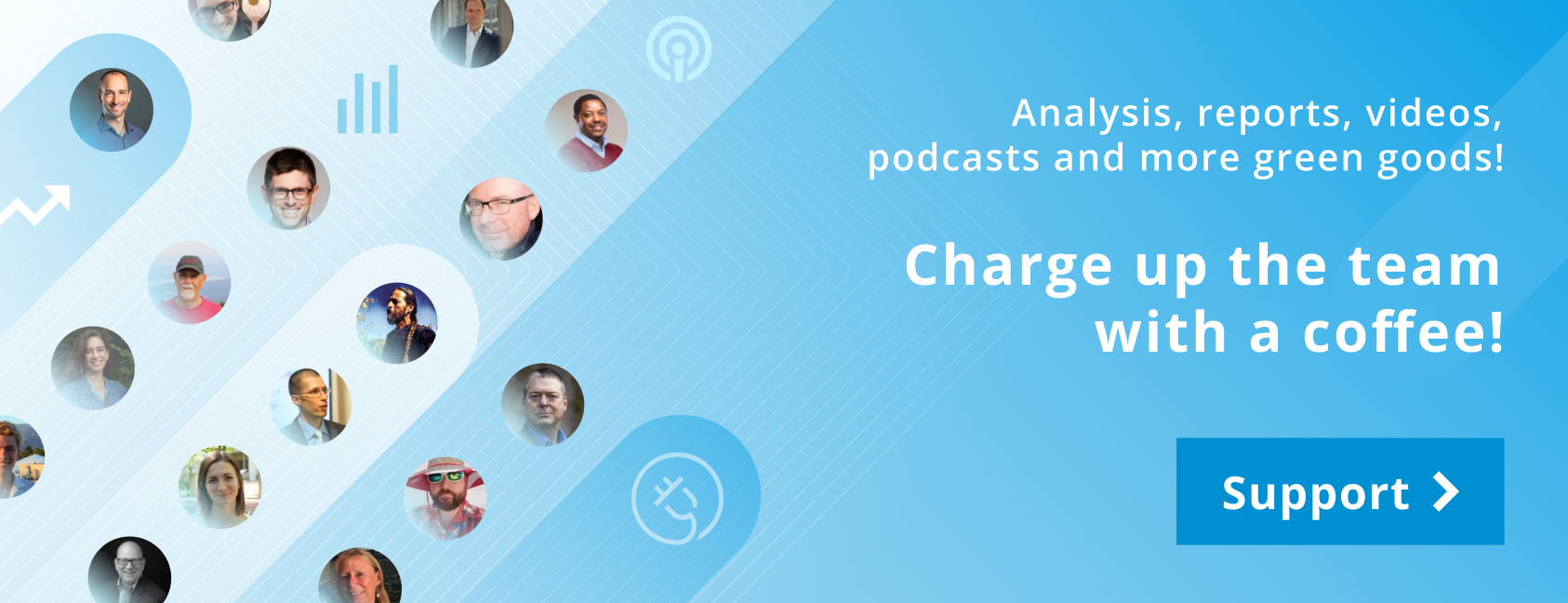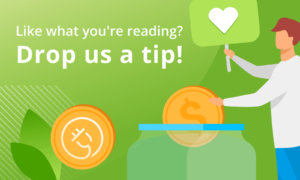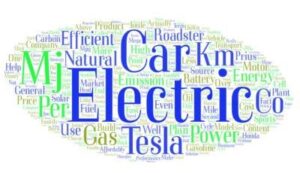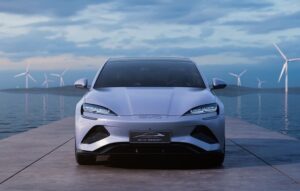By the end of 2023, Frito-Lay will introduce over 700 electric delivery vehicles in the United States, the company recently announced in honor of Earth Month. The use of the electric vehicles is anticipated to reduce emissions by 7,052 metric tons of greenhouse gases (GHG) each year, which is equivalent to removing 1,533 passenger cars from the road in that regard.
The decision underscores the PepsiCo division’s strong fulfillment toward its PepsiCo Positive sustainability goals, especially when combined with developments in regenerative agriculture, water conservation technologies, packaging innovation, and more.
“Our mission is to create more smiles and a brighter future with every bite,” said Steven Williams, PepsiCo Foods North America CEO. “As a collective of America’s most beloved brands, we have the unique opportunity to create a real impact by boldly innovating the way food is grown, made, and shared.”
As customers increasingly focus on sustainability, Frito-Lay is looking to stay ahead and remain a favorite brand of millions of people. It is saying to consumers: You don’t have to choose between taste and impact. We are using our massive place at the table to bring about positive change.
“Frito-Lay’s beloved brands have made millions of people smile for almost a century. We see it as a great opportunity to ensure our business contributes positively to the world,” said David Allen, vice president and chief sustainability officer, PepsiCo Foods North America. “From how our potatoes and corn are grown to how we make, transport, and sell our products, Frito-Lay will continue to leverage our scale to create real positive impact for people and our planet.”
In order to create sustainable long-term value and competitive advantage, PepsiCo Positive (pep+), a strategic end-to-end transformation of the company, depends on Frito-Lay evolving fast. Pep+ operates on three pillars that drive action and industry-leading objectives, including:
Positive Agriculture
Frito-Lay says that it is committed to regenerative agriculture practices that support farmer livelihoods, enhance soil health, lower carbon emissions, increase watershed health and variety, and improve watershed health.
By the numbers, the company:
- Has a 3.5-million-acre farming footprint of agricultural land in the U.S., with a goal to use regenerative agriculture practices across its entire footprint (7 million acres globally across PepsiCo) by 2030
- Uses its agricultural supply chain to improve the livelihoods of more than 12,000 U.S. farmers
- 100% of the corn and potatoes (1.5 million metric tons) used to make Frito-Lay products in North America are sustainably sourced, adhering to and providing assurances for the social, environmental, and economic principles of our Sustainable Farming Program (SFP)
Positive Value Chain
A crucial component in meeting the pep+ net-zero emissions target by 2040 is the nationwide introduction of zero- and near-zero-emission vehicles. “The introduction of electric vehicles throughout our owned fleet and that of our partners is in direct support of our commitment to building a circular and inclusive value chain,” said Laura Maxwell, senior vice president of supply chain at PepsiCo Foods North America. “At our Modesto, California, plant, we have reduced our greenhouse gas emissions by 91% from direct fleet operations, and we look forward to scaling that as we add electric vehicles throughout the country.”
Beyond electric vehicles, Frito-Lay is also marking progress on renewable energy and saving water in pursuit of a sustainable value chain through:
Positive Choices
Sister firms Frito-Lay and The Quaker Oats Company are making decisions that provide nutritional benefits by consciously adopting more diversified ingredients. It is putting whole grains, plant-based proteins, and chickpeas first.
Together, Frito-Lay and Quaker are designing all packaging to be recyclable, compostable, biodegradable, or reusable by 2025 as a next step in their pep+ journey. The business recently unveiled its new, leading-edge Greenhouse Learning Center, which will examine how well packaging materials degrade in various settings.
PepsiCo is moving in the right direction with the addition of 700 electric delivery vehicles. Hopefully there will be more in the near future. I know the Frito-Lay driver for our area would be thrilled to get an all-electric delivery truck.
Sign up for daily news updates from CleanTechnica on email. Or follow us on Google News!
Have a tip for CleanTechnica, want to advertise, or want to suggest a guest for our CleanTech Talk podcast? Contact us here.
Investing Thoughtfully In The EV & Cleantech Mineral Boom
I don’t like paywalls. You don’t like paywalls. Who likes paywalls? Here at CleanTechnica, we implemented a limited paywall for a while, but it always felt wrong — and it was always tough to decide what we should put behind there. In theory, your most exclusive and best content goes behind a paywall. But then fewer people read it! We just don’t like paywalls, and so we’ve decided to ditch ours. Unfortunately, the media business is still a tough, cut-throat business with tiny margins. It’s a never-ending Olympic challenge to stay above water or even perhaps — gasp — grow. So …
- SEO Powered Content & PR Distribution. Get Amplified Today.
- Platoblockchain. Web3 Metaverse Intelligence. Knowledge Amplified. Access Here.
- Minting the Future w Adryenn Ashley. Access Here.
- Source: https://cleantechnica.com/2023/04/20/frito-lay-expedites-2040-net-zero-emissions-goal-buys-700-electric-delivery-vehicles/
- :is
- $UP
- 000
- 1
- 2023
- 7
- 9
- a
- About
- above
- across
- Action
- addition
- Adopting
- ADvantage
- Advertise
- Agricultural
- agriculture
- ahead
- All
- all-electric
- also
- always
- america
- an
- and
- announced
- Anticipated
- ARE
- AREA
- AS
- At
- BE
- behind
- beloved
- benefits
- BEST
- between
- Bit
- brand
- brands
- brighter
- bring
- Building
- business
- Buys
- by
- carbon
- carbon emissions
- cars
- Century
- ceo
- chain
- challenge
- change
- chief
- chip
- choices
- Choose
- cleantech
- Cleantech Talk
- Collective
- combined
- commitment
- committed
- company
- competitive
- component
- CONSERVATION
- Consumers
- content
- continue
- country
- create
- crucial
- Customers
- decide
- decided
- decision
- decisions
- delivery
- depends
- designing
- developments
- direct
- direction
- diversified
- Division’s
- don
- Dont
- drive
- driver
- each
- earth
- Economic
- Electric
- electric vehicles
- Emissions
- end-to-end
- energy
- ensure
- Entire
- environmental
- Equivalent
- especially
- Ether (ETH)
- EV
- Even
- Every
- evolving
- Exclusive
- farming
- FAST
- Favorite
- firms
- First
- FLEET
- Focus
- food
- foods
- Footprint
- For
- Forward
- from
- fulfillment
- future
- GAS
- get
- GHG
- Globally
- goal
- Goals
- Goes
- great
- greenhouse gas
- Greenhouse gas emissions
- Grow
- grown
- Guest
- Have
- Health
- help
- here
- Hopefully
- How
- HTML
- HTTPS
- i
- Impact
- implemented
- improve
- in
- Including
- Inclusive
- Increase
- increasingly
- industry-leading
- innovating
- Innovation
- introduce
- Introduction
- IT
- ITS
- journey
- jpg
- Know
- Land
- learning
- Leverage
- like
- Limited
- long-term
- Look
- looking
- made
- make
- Making
- margins
- massive
- materials
- Media
- meeting
- metric
- million
- millions
- mineral
- Mission
- Month
- monthly
- more
- most
- moving
- Nationwide
- Near
- net-zero
- New
- news
- next
- North
- north america
- numbers
- objectives
- of
- Officer
- Olympic
- on
- operates
- Operations
- Opportunity
- or
- order
- our
- over
- owned
- packaging
- partners
- Patreon
- PayPal
- People
- perhaps
- Place
- planet
- plato
- Plato Data Intelligence
- PlatoData
- please
- podcast
- positive
- practices
- president
- principles
- PRNewswire
- Products
- Program
- Progress
- Proteins
- provide
- providing
- put
- Putting
- Read
- real
- recently
- reduce
- Reduced
- regenerative
- Regenerative Agriculture
- remain
- removing
- Renewable
- renewable energy
- reusable
- road
- s
- saving
- says
- Scale
- scaling
- sell
- senior
- settings
- shared
- should
- So
- Social
- States
- stay
- Step
- Still
- Strategic
- strong
- supply
- supply chain
- support
- Sustainability
- sustainable
- table
- Talk
- Target
- taste
- team
- Technologies
- than
- that
- The
- the world
- their
- There.
- three
- thrilled
- Through
- throughout
- tip
- to
- tons
- toward
- Transformation
- transport
- truck
- u.s.
- unique
- United
- United States
- unveiled
- Updates
- us
- use
- used
- value
- variety
- various
- Ve
- Vehicles
- via
- Vice President
- was
- Water
- Way..
- we
- WELL
- What
- which
- while
- WHO
- will
- with
- world
- would
- Wrong
- year
- you
- Your
- zephyrnet







